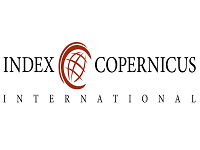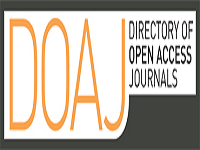The Need for Management Change in CSR Programs for The Oil and Gas Industry
Keywords:
CSR, Change Management, Petroliam, Oil-Gas IndustryAbstract
This case consider analyzes the commerce of an oil and gas company petroliam, in a time of emergency: the administration had to scale back operations to outlive in an erratic circumstance. The administration was actualizing modern inner approaches that would have an affect on its corporate social obligation (CSR) programs. Be that as it may, the rules and convictions of the organization environment have the potential to impact the administration alter handle at EMP. Aside from outside rules and convictions, the tirelessness of the social benefit ethos inside the company, acquired from the past, clarifies the need of administration changes. An informative case ponder approach was embraced, generally comprising of semi-structured interviews and archive examination. The inquire about technique borrows the organization rationale approach based on situational reasons for variety in organizational hones, which decide how different rationales are tended to. In quintessence, petroliam must resolve the pressure between generation requests and CSR endeavors. As a result, administration change happens in a inquire about setting where social programs and generation objectives coexist
Downloads
References
1. Abdul-Manan, A. F., Baharuddin, A., & Chang, L. W. (2015). Ex-post critical evaluations of energy policies in Malaysia from 1970 to 2010: A historical institutionalism perspective. Energies, 8(3), 1936-1957.
2. Afham, M. A., & Razali, M. A. (2024). Scenario of energy policy and act in Malaysian energy building efforts for sustainable development: A review. Journal of Mechanical Engineering and Sciences, 10330-10349.
3. Antonsen, S. (2009). Safety culture assessment: A mission impossible?. Journal of contingencies and crisis management, 17(4), 242-254.
4. Aworawo, D. (2013). Deprivation and resistance: environmental crisis, political action, and conflict resolution in the Niger Delta since the 1980s. Journal of International and Global Studies, 4(2), 52-70.
5. Bihari, A., & Shajahan, P. K. (2023). Changing CSR practices of corporates–a study of institutionalization of mandated corporate social responsibility in India. International Journal of Law and Management, 65(2), 105-124.
6. Carrillo, P. (2004). Managing knowledge: lessons from the oil and gas sector. Construction management and economics, 22(6), 631-642.
7. Carollo, L., & Guerci, M. (2017). Between continuity and change: CSR managers’ occupational rhetorics. Journal of Organizational Change Management, 30(4), 632-646.
8. Chua, S. C., & Oh, T. H. (2010). Review on Malaysia's national energy developments: Key policies, agencies, programmes and international involvements. Renewable and Sustainable Energy Reviews, 14(9), 2916-2925.
9. Connolly, C., Hyndman, N., & Liguori, M. (2021). Legitimating accounting change in charities: when values count more than regulation. Journal of Accounting & Organizational Change, 17(1), 23-49.
10. Contrafatto, M., & Burns, J. (2013). Social and environmental accounting, organisational change and management accounting: A processual view. Management Accounting Research, 24(4), 349-365.
11. Edum-Fotwe, F. T., & Price, A. D. (2009). A social ontology for appraising sustainability of construction projects and developments. International Journal of Project Management, 27(4), 313-322.
12. Emeka-Okoli, S., Nwankwo, T. C., Otonnah, C. A., & Nwankwo, E. E. (2024). Integrating Sustainable Development Goals into Oil & Gas Operations: A Comprehensive Review. International Journal of Management & Entrepreneurship Research, 6(3), 660-677.
13. Gore, O. (2023). Modernising government, aestheticising decision information: how ‘business-like’quantification turns performance numbers into aesthetic enumerated entities. Culture and Organization, 29(4), 315-335.
14. Hanlon, M., Yeung, K., & Zuo, L. (2022). Behavioral economics of accounting: A review of archival research on individual decision makers. Contemporary Accounting Research, 39(2), 1150-1214.
15. Hasni, H. C. (2023). A qualitative investigation of the role of digitalization in transforming the business model and improving the performance of Petroliam Nasional Berhad (Petronas) in Malaysia. University of Wales Trinity Saint David (United Kingdom).
16. Hussain, S. T., Lei, S., Akram, T., Haider, M. J., Hussain, S. H., & Ali, M. (2018). Kurt Lewin's change model: A critical review of the role of leadership and employee involvement in organizational change. Journal of innovation & knowledge, 3(3), 123-127.
17. Josefy, M., Kuban, S., Ireland, R. D., & Hitt, M. A. (2015). All things great and small: Organizational size, boundaries of the firm, and a changing environment. Academy of Management Annals, 9(1), 715-802.
18. Kantabutra, S. (2012). Putting Rhineland principles into practice in Thailand: sustainable leadership at bathroom design company. Global Business and Organizational Excellence, 31(5), 6-19.
19. Kilian, T., & Hennigs, N. (2014). Corporate social responsibility and environmental reporting in controversial industries. European Business Review, 26(1), 79-101.
20. Koolwal, N., & Khandelwal, S. (2019, February). Corporate social responsibility (CSR) implementation in oil & gas industry: Challenges and solutions. In Proceedings of International Conference on Sustainable Computing in Science, Technology and Management (SUSCOM), Amity University Rajasthan, Jaipur-India.
21. Kraal, D. (2019). Petroleum industry tax incentives and energy policy implications: A comparison between Australia, Malaysia, Indonesia and Papua New Guinea. Energy policy, 126, 212-222.
22. Liu, Z., Tang, Y. M., Chau, K. Y., Chien, F., Iqbal, W., & Sadiq, M. (2021). Incorporating strategic petroleum reserve and welfare losses: a way forward for the policy development of crude oil resources in South Asia. Resources Policy, 74, 102309.
23. Lyneis, J., & Sterman, J. (2016). How to save a leaky ship: Capability traps and the failure of win-win investments in sustainability and social responsibility. Academy of Management Discoveries, 2(1), 7-32.
24. Miceli, A., Hagen, B., Riccardi, M. P., Sotti, F., & Settembre-Blundo, D. (2021). Thriving, not just surviving in changing times: How sustainability, agility and digitalization intertwine with organizational resilience. Sustainability, 13(4), 2052.
25. Mohajan, H. K. (2018). Qualitative research methodology in social sciences and related subjects. Journal of economic development, environment and people, 7(1), 23-48.
26. Mohamad-Yusof, N. Z., Wickramasinghe, D., & Zaman, M. (2018). Corporate governance, critical junctures and ethnic politics: Ownership and boards in Malaysia. Critical Perspectives on Accounting, 55, 33-52.
27. Munodawafa, R. T., & Johl, S. K. (2022). Measurement development for eco-innovation capabilities of Malaysian oil and gas firms. International Journal of Productivity and Performance Management, 71(8), 3443-3465.
28. Nudurupati, S. S., Garengo, P., & Bititci, U. S. (2021). Impact of the changing business environment on performance measurement and management practices. International Journal of Production Economics, 232, 107942.
29. Omar, H. S. (2007). Internal and external pay equity perception among managers in the Malaysian oil and gas industry (Doctoral dissertation, Open University Malaysia (OUM)).
30. Okoye, C. C., Ofodile, O. C., Nifise, A. O. A., Odeyemi, O., & Tula, S. T. (2024). Climate risk assessment in petroleum operations: A review of CSR practices for sustainable Resilience in the United States and Africa. GSC Advanced Research and Reviews, 18(2), 234-245.
31. Orbaningsih, D., Pakaja, F., Handhajani, S. B. P., & Nursiswati, A. (2024). The Influence of Organizational Climate and Market Orientation on Business Performance with Financial Literacy and Csr as Mediation in MSMES in Malang City. Revista De Gestão Social E Ambiental, 18(6), e05784-e05784.
32. Parrish, B. D. (2010). Sustainability-driven entrepreneurship: Principles of organization design. Journal of business Venturing, 25(5), 510-523.
33. Rahim, K. A., & Liwan, A. (2012). Oil and gas trends and implications in Malaysia. Energy Policy, 50, 262-271.
34. Rana, S. (2012). Philanthropic innovation and creative capitalism: A historical and comparative perspective on social entrepreneurship and corporate social responsibility. Ala. L. Rev., 64, 1121.
35. Stimpson, S., Todesco, J., & Maginley, A. (2015). Strategies for risk management and corporate social responsibility for oil and gas companies in emerging markets. Alta. L. Rev., 53, 259.
36. Subramaniam, N., Kansal, M., & Babu, S. (2017). Governance of mandated corporate social responsibility: Evidence from Indian government-owned firms. Journal of Business Ethics, 143, 543-563.
37. Urciuoli, L., Mohanty, S., Hintsa, J., & Gerine Boekesteijn, E. (2014). The resilience of energy supply chains: a multiple case study approach on oil and gas supply chains to Europe. Supply Chain Management: An International Journal, 19(1), 46-63.
38. Yang, Y., Liu, Z., Saydaliev, H. B., & Iqbal, S. (2022). Economic impact of crude oil supply disruption on social welfare losses and strategic petroleum reserves. Resources Policy, 77, 102689.
39. Zahari, W. Z. (2017). On the contractual risk allocation in oil and gas projects. The Law Review (LR), 168-193.
40. Zulhafiz Wan Zahari, W. M., & Shuaib, F. S. B. (2020). The distribution of petroleum resources in Malaysia: unpacking federalism. The Journal of World Energy Law & Business, 13(5-6), 369-385.



 .
.









